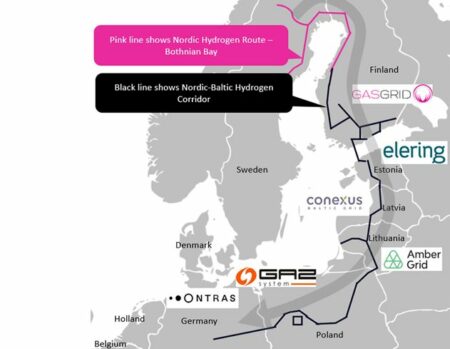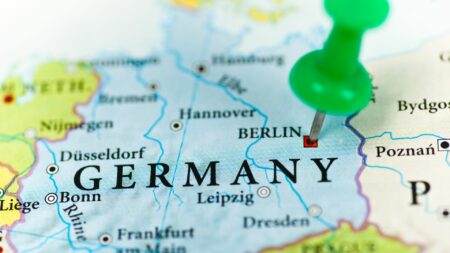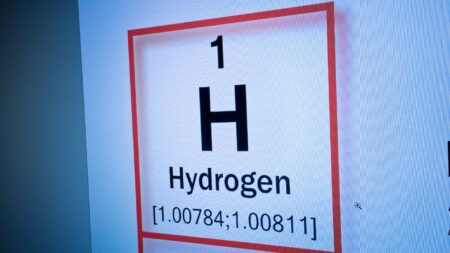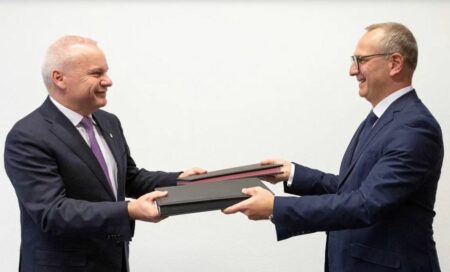Airbus has inaugurated the ZEROe Development Centre (ZEDC) for hydrogen technologies at its Stade site in Germany.
Browsing: Germany
Germany, a key player in the global energy transition, has set its sights on green hydrogen as a linchpin in its quest for a sustainable future.
Gas transmission system operators (TSOs) from six EU countries are translating the European Hydrogen Backbone (EHB) vision into concrete action.
National Industrial Learning Service (Senai), in collaboration with the H2Brasil project under the Brazil-Germany Cooperation for Sustainable Development, has undertaken a pioneering study titled “Green Hydrogen Market and Power-to-X (PtX): Demand for Professional Training.” This study aims to identify the key professions essential for steering Brazil’s transition towards a low-carbon economy.
South Africa emerges as a potential secure producer, offering a strategic supply to Germany and beyond. Despite the promise, challenges persist in storing and distributing this renewable resource.
Germany has emerged as the first Member State to embrace the European Union’s innovative “Auctions-as-a-Service” scheme under the umbrella of the European Hydrogen Bank.
The state of Baden-Württemberg is placing its bets on hydrogen as the primary energy source. The state government’s recent determination of key regions with a particularly high demand for hydrogen sets the stage for a groundbreaking energy transition.
Germany is on the brink of a transformative shift in its energy landscape with the impending implementation of the new regulation under the Building Energy Act (GEG), set to take effect on January 1, 2024.
European Investment Bank (EIB) and Germany have announced a significant expansion of the Green Hydrogen Fund.
Equinor and Germany’s state-owned energy company, SEFE (Securing Energy for Europe), have entered into long-term gas sales agreements, signaling not only a strategic energy partnership but also a significant step toward large-scale hydrogen supplies.












